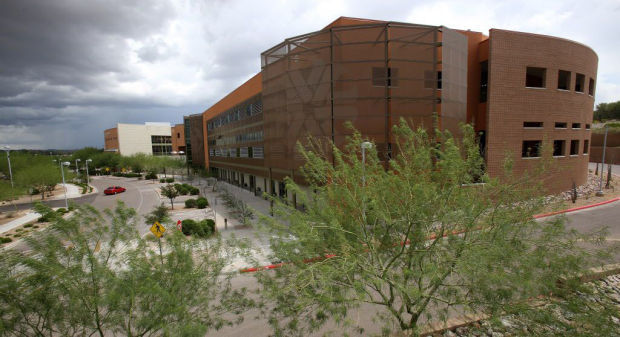PHOENIX — Cochise College is the second-best community college in the country, according to a WalletHub survey.
It’s not that the district spends a lot on each student. In fact, the financial-advice website found per-student spending among the lowest in the country.
The relatively low tuition and fees in comparison to other colleges helped. So did higher-than-average faculty salaries.
But what pushed the system to the No. 2 spot was the high number of degrees, certificates and other credentials it issues based on the number of students enrolled. And the Cochise system, which features campuses in Douglas and Sierra Vista and centers in Benson, Nogales and Willcox, had among the lowest student-loan default rates in the country.
The Mohave Community College system also showed up near the top at No. 41, followed by Scottsdale Community College, a branch of the Maricopa County system. Pima Community College ranked 295th out of 728 colleges on the list that were reviewed.
At the other extreme, WalletHub ranked Rio Salado Community College, headquartered in Tempe, at No. 715 out of 728.
While the college costs the same $2,094 as others in the Maricopa system, WalletHub found per-student spending at the far low end. And the college had a first-year retention rate of just 33 percent, with just 5 percent of those enrolled going on to graduation.
That, however, may have to do more with the unique role of Rio Salado, which caters more to students looking to take individual classes rather than pursue a degree.
Not all Arizona community colleges were included in the study. WalletHub spokeswoman Diana Popa said some members of the American Association of Community Colleges were excluded “due to data limitations.”
But among the 19 Arizona colleges in the study, there were some significant differences.
That starts with how much it costs.
The Tohono O’odham Community College was listed as the cheapest among the schools studied in the entire country, with typical tuition and fees of just $842 a year.
Even that does not tell the whole story, with the tribe offering scholarships to recent high school graduates and students with general equivalency diplomas to cover the cost of not only tuition and fees but also $250 toward the cost of books. There is a requirement to register for at least 12 semester hours and maintain a 2.0 grade-point average.
WalletHub also awarded points to the tribal college based on having just eight students for each faculty member.
But the system lost points in the study because of a first-year retention rate of just 45 percent.
By contrast, the Pima Community College system, with in-state tuition and fees of $2,046, retained 64 percent of its students after the first year.
On the other side of the equation, Pima lost points for relatively low financial aid, with the average grant or scholarship of $3,540.
The report pointed up some other distinct differences among the Arizona community colleges studied.
Consider per-pupil spending.
Central Arizona College topped the list at $15,953, with Northland Pioneer Community College not far behind at $15,325.
At the other extreme were Rio Salado at $6,345 per student and Cochise, which spent just $6,729.
There also were marked differences in salaries.
Even after the cost of living of each area was factored out, Coconino faculty members were making the least, on average, at $52,153. Their counterparts at Pima were doing little better, at $52,503.
The best salaries were in the Maricopa system, topping off at $87,697 in Glendale, $86,984 in Mesa and $86,362 in Phoenix.
And the student-loan default rate ranged from just 5.2 percent in the Cochise system to more than 30 percent at South Mountain Community College.





